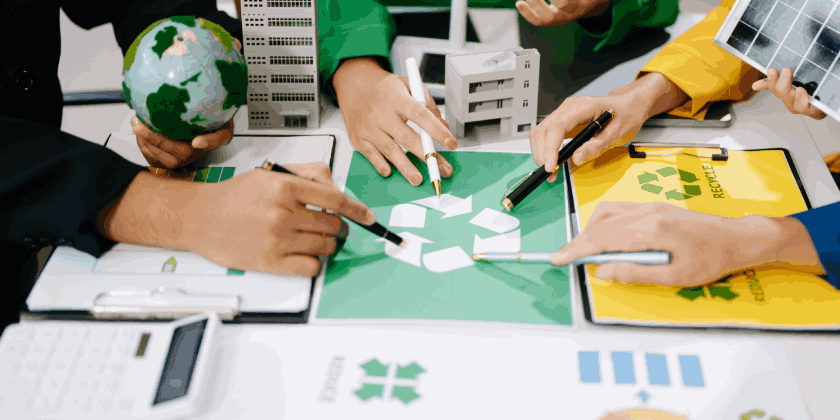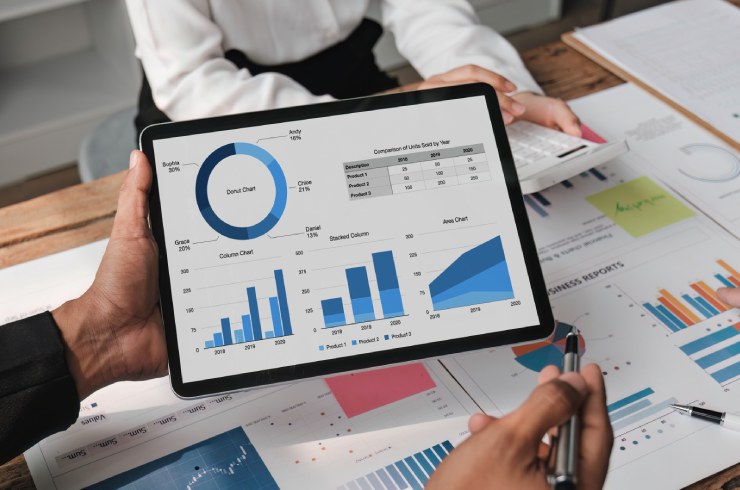Introduction
As global environmental concerns intensify and regulatory frameworks tighten, businesses are under growing pressure to adopt sustainable practices. Green consulting, or sustainability consulting, has emerged as a critical industry aimed at guiding companies toward eco-friendly operations, carbon neutrality, and circular economy models. But how will this field evolve? This article explores the technical advancements, regulatory shifts, and future trends that will define green consulting in the coming years.
The Driving Forces Behind Green Consulting
Several factors are accelerating the demand for sustainability consulting:
Financial Incentives – Investors are shifting capital towards environmentally responsible firms, increasing the demand for green audits and ESG compliance strategies.
Stricter ESG (Environmental, Social, Governance) Regulations – Governments worldwide are enforcing sustainability disclosure requirements, compelling businesses to seek expert guidance.
Market and Consumer Pressure – Consumers are increasingly favoring brands that prioritize sustainability, pushing businesses to adapt.
Technological Innovations – AI, blockchain, and IoT are revolutionizing how sustainability data is collected, analyzed, and implemented.
Key Areas of Future Growth in Green Consulting
1. AI-Driven Sustainability Analytics
AI-powered analytics will play a pivotal role in sustainability consulting. By leveraging machine learning and big data, consultants can:
- Predict carbon emissions and recommend reduction strategies.
- Optimize energy consumption patterns through real-time monitoring.
- Identify inefficiencies in supply chains to minimize waste.
2. Blockchain for Transparent ESG Reporting
Blockchain technology will revolutionize ESG reporting and sustainability audits by providing:
- Immutable records of a company’s sustainability claims.
- End-to-end supply chain traceability, ensuring ethical sourcing and waste management.
- Automated smart contracts for carbon credit trading.
3. Circular Economy Consulting
The transition from a linear economy (produce-use-dispose) to a circular economy (reduce-reuse-recycle) will be a major focus. Green consultants will guide companies in:
- Designing products for longevity and recyclability.
- Implementing closed-loop supply chains.
- Establishing reverse logistics for material recovery.
4. Carbon Neutrality and Net-Zero Strategies
With more companies committing to net-zero emissions, green consultants will be essential in:
- Developing science-based carbon reduction targets.
- Advising on carbon capture and storage (CCS) technologies.
- Assisting in carbon credit investments and offsets.
5. Smart Energy and Green Infrastructure
The future of sustainability consulting will also involve guiding companies in:
Integrating renewable energy sources like solar and wind power.
Implementing smart grids and decentralized energy solutions.
Designing net-zero buildings with energy-efficient systems.
Regulatory and Policy Shifts: A Game Changer
Governments and international organizations are tightening sustainability regulations. Key developments include:
- EU Green Deal and Corporate Sustainability Reporting Directive (CSRD) imposing stricter ESG disclosure requirements.
- SEC’s proposed climate risk disclosure rules, mandating detailed sustainability reporting for U.S. companies.
- China’s carbon neutrality pledge by 2060, influencing supply chain sustainability across industries.
Green consultants will need to stay ahead of these regulatory trends, ensuring compliance and helping businesses navigate the complex legal landscape.
Challenges and Risks in Green Consulting
Despite its rapid growth, the industry faces challenges:
Data Reliability – Accurately measuring sustainability performance remains a challenge due to inconsistent methodologies.
Greenwashing Risks – Ensuring that sustainability claims are genuine and not just marketing tactics.
High Implementation Costs – Some green solutions require significant upfront investments, making ROI calculations critical.
Lack of Standardization – Varying ESG frameworks (GRI, SASB, TCFD) create confusion for businesses and consultants alike.
The Future Outlook: A Hybrid Consulting Model?
The next generation of green consulting will likely integrate:
Collaboration with financial institutions to align ESG goals with investment strategies.
AI-driven decision-making, replacing traditional manual sustainability assessments.
On-demand, subscription-based sustainability advisory services.
Partnerships with tech firms to leverage IoT, AI, and blockchain solutions.
Small Business Administration (SBA) Loans
SBA loans are government-backed loans provided through participating lenders, designed to support small businesses. These loans typically offer lower interest rates and longer repayment terms. To apply for an SBA loan, businesses must meet eligibility criteria, prepare a comprehensive business plan and financial documents, and apply through an SBA-approved lender.
Conclusion
The evolution of sustainability consulting will be driven by technological advancements, regulatory pressures, and shifting market demands. Companies that fail to embrace green strategies will risk obsolescence, while those that proactively engage in sustainable transformation will thrive in a competitive landscape.
Green consulting is no longer just an ethical choice—it is a strategic necessity. As industries transition toward net-zero, circular economies, and AI-driven sustainability, green consultants will be at the forefront, shaping the business world of tomorrow.



